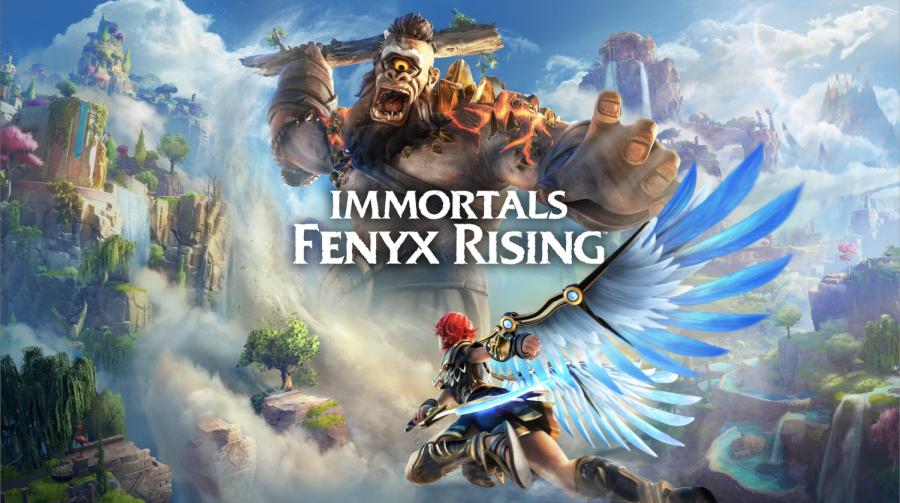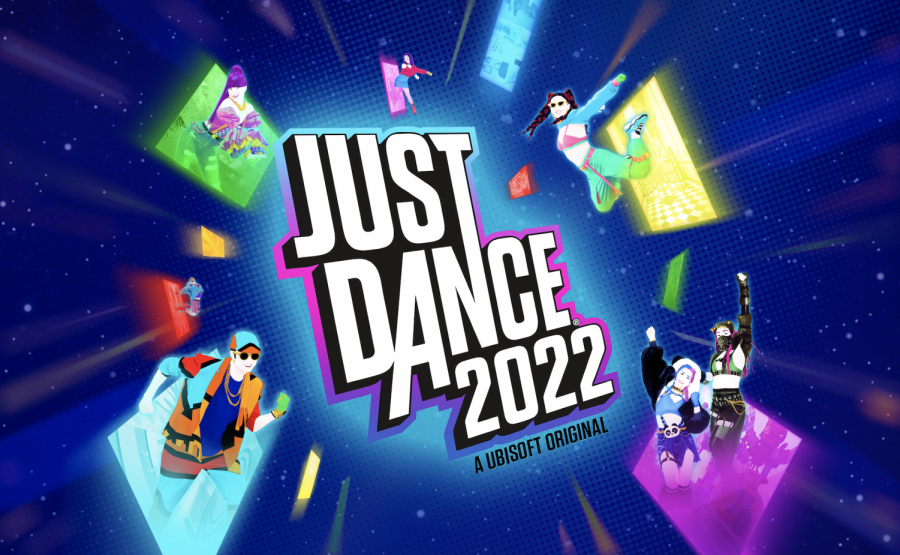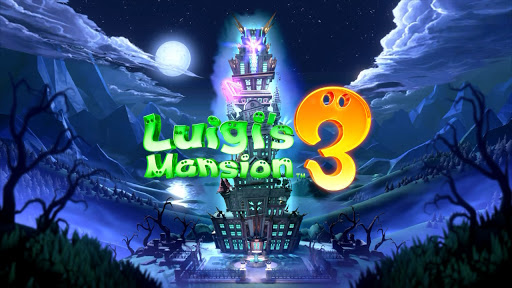Here’s a controversial statement: I have never played The Legend of Zelda: Breath of the Wild (BotW).
In fact, I’ve never picked up any game in the Zelda series, despite its worldwide prominence on the same stage as franchises like Mario and Pokémon. This means that during the advertising cycle for Ubisoft’s latest title “Immortals Fenyx Rising,” when the game community noticed its many similarities to BotW—some scoffing at the so-called “plagiarism” and others excited by a fun new spin on their favorite game—I was not among them.
But, after 50+ hours spent in the immersive, mythology-inspired world of “Immortals,” I can safely say that the game stands tall on its own, with or without the foundational experience of exploring Hyrule. Complete with its own fresh takes on the dynamic puzzles, challenging quests and distinctive, likable characters that popularized BotW, “Immortals” successfully breaks free of Link’s shadow as a definitive new entry in the open world genre.

“Immortals” opens with a story; in fact, the whole game is a Homeric epic, narrated by Zeus and Prometheus atop Mount Olympus. The titan Typhon has reawakened and sealed away the gods’ essences in Vaults of Tartaros, and it’s up to you, the mortal Fenyx, to stop him. Zeus and Prometheus introduce this high-stakes conflict in a humorous back-and-forth that’s written with real personality, each of them taking every possible opportunity to riff on his storytelling companion. And, once you customize your protagonist’s look, the two gods continue to narrate your adventures on the Golden Isle, with natural, non-repetitive dialogue filled with references to the Greek myths as we all know them (yes, I’m a Classics major). The fact that these moments, which occasionally interrupt gameplay, don’t feel forced or contrived (for the most part) is a huge victory for a game with so. many. cutscenes.
These references to Greek myths of old play a huge role in the game’s main storyline. As Fenyx, you’ll collect different iconic weapons and armor belonging to ancient heroes, such as Achilles’ sword, Odysseus’ bow or the axe of Atalanta, and you’ll battle corrupted wraiths of these same heroes. With so much in your arsenal, it’s easy to experiment and find your preferred playstyle, as the game’s relatively standard skill tree allows you to develop both your normal abilities and your godly abilities as you progress. Additionally, as you rescue the gods that Typhon sealed away, they’ll give you their blessings at key story moments, further enhancing battles and gameplay.
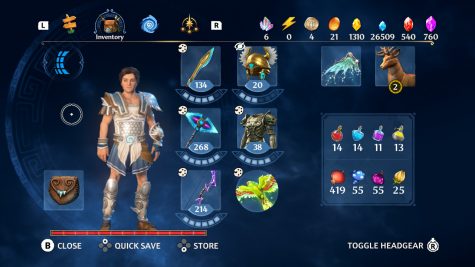
Aside from this collectathon-and-upgradathon, freeing the gods provides the key narrative experience in “Immortals,” and each of the four main subplots—for Aphrodite, Athena, Ares and Hephaistos—are written wonderfully and accompanied by a truly Olympian soundtrack. The gods each have their own unique personalities and map regions that are loosely based on the myths, and they even interact with each other during idle moments in the game’s hub area, the Hall of the Gods. They get angry and argue; they get emotional and sensitive, and they even make sex jokes—quite often. All this together creates characters that truly have character.
Fenyx, as the protagonist, is equally personable. Every cutscene is individualized based on what armor and weapons you currently have equipped, whether you’re brewing stamina potions at the cauldron of Circe or upgrading your helmet durability at Hephaistos’ workbench. When you find a chest, Fenyx might dap it up or give himself a little drumroll before opening it. He has his own dialogue and feels like a person, something that Nintendo has struggled with when it comes to Link’s silent stoicism.
Where “Immortals” does take cues from the Zelda series is in its vast, open world. Gameplay isn’t completely intuitive from the get-go, but it doesn’t take long to figure out, especially with a neatly designed compass system that will reliably steer you toward nearby landmarks, chests, puzzle Vaults or custom map pins. You’ll experiment with these map elements and explore wildly varying environments to figure out both your favorite puzzle-solving strategies and battle tactics for arena showdowns. You make your own roadmap and take detours at your own pace. Overwhelmingly, you learn as you go, just as Fenyx does.
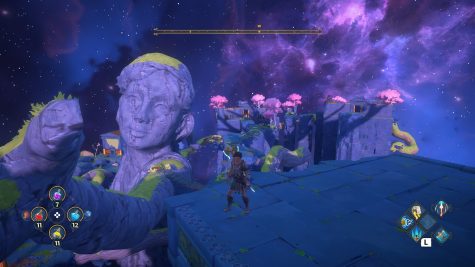
In the same vein, the many boss battles randomly scattered throughout the world are enjoyable, but awkwardly paced: some can be completed in 30 seconds, but others might take more than 10 minutes. While that’s largely a product of the “play your own way” style the game emphasizes (you can prepare a lot or a little), it’s also somewhat due to confusing variations in different enemies’ movesets. It might be easy to dodge the boulders that the Cyclopes hurl at you, but Medusa’s stone gaze is nearly impossible to avoid.
The only gameplay element that definitively bothered me was climbing walls. BotW was lauded for the first-of-its-kind mechanic in which nearly any wall in the expansive world could be climbed and, since then, a host of other games have tried to copy this with varying levels of success. The mechanic in “Immortals” isn’t awful, but it’s awkward, unnatural and difficult to get used to, even after a lot of practice and ability upgrades. In the Vaults of Tartaros, only wall edges are climbable, exacerbating the problem and requiring the occasional frame-perfect jump during difficult platforming challenges.
All this aside, “Immortals” is a mythologically magnificent game that cuts deeper and deeper as its story develops. Fenyx can barely move past his own self-doubt at the beginning of the narrative, but rescuing each of the Gods teaches him key lessons about life. Aphrodite’s jealousy and vanity might have caused some of the greatest conflicts of all time (think the Trojan War), but those same conflicts produced epics and stories on the grandest scale. Likewise, Athena’s criticisms and harsh judgments, which may make her seem imposing and even plain rude, give her the power to refuse bad advice and remain confident in her own abilities. Ares and Hephaistos go through similarly empowering character arcs, as does Zeus in his own way.
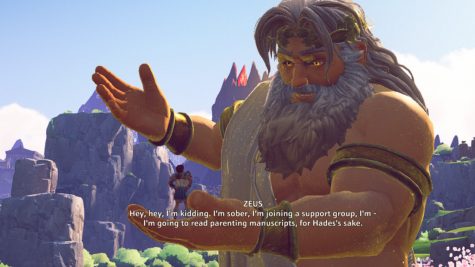
“Immortals” thus sends the message that one must embrace his or her character flaws, because even the gods have their own. Without these flaws, nothing interesting would ever happen. And so “Immortals,” a game about the almighty, infallible (or not) Greek gods, becomes a game about people who are simply human—no more, no less.
“Immortals Fenyx Rising” is now available on PS4, PS5, Xbox One, Xbox Series X, Nintendo Switch, Stadia and PC.











